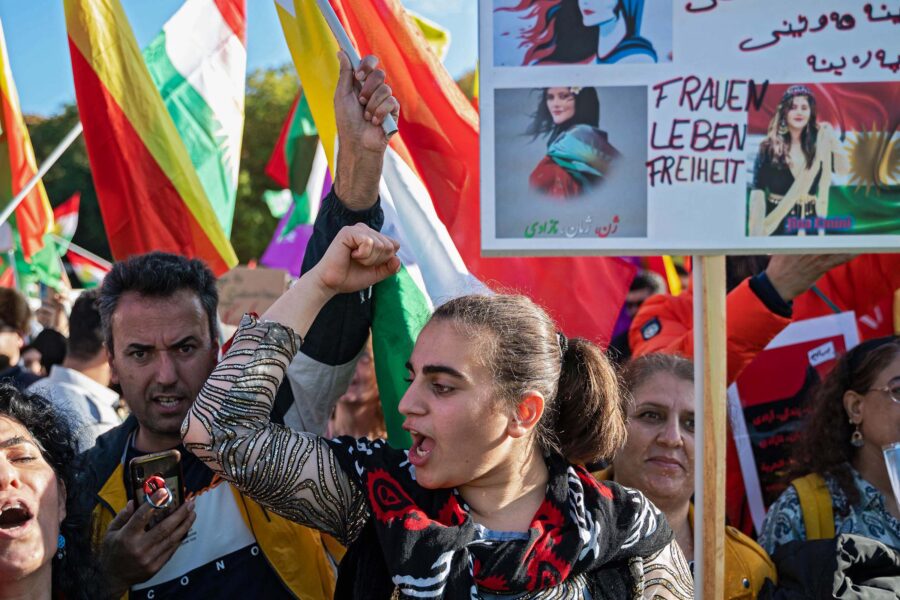Climate action that protects the right to development
Carbon emission reduction plans designed by developed nations can – whether by intention or not – deny developing nations the opportunity to develop. Balancing climate action with economic progress is critical to creating an inclusive, resilient future for all
Climate — Global

COP29, in November 2024 in Azerbaijan, is a critical moment for world leaders to make real progress on climate commitments – and at the same time fast-track low-carbon, climate-friendly development in the world’s poorest countries. We cannot accept solutions and commitments that fail to address and support the right to development in the countries of the Global South and threaten to widen the gap between rich and poor countries.
Developing countries are hit hardest by the impacts of climate change, to which they have contributed the least. Industrialized countries, particularly the G20, bear the most responsibility, accounting for 80% of global CO2 emissions. But developing countries, especially small island developing states (SIDS) and least developed countries (LDCs), are paying the highest price. They are losing lives and harvests, and struggling to rebuild with limited resources following one extreme weather after another – money that could have been invested in their development.
No development without industry
The countries of the Global South need a resilient and sustainable development perspective. We need global solidarity and an investment offensive in sustainable industrialization, in infrastructure, and in jobs for hundreds of millions of young people.
To achieve our Sustainable Development Goals – to end hunger and poverty – we need economic growth of at least 7% per year in developing countries. For this, industrial development is the key.Industrialization has lifted millions out of poverty, created jobs, advanced technology and increased social prosperity. However, industry is also one of the largest emitters of greenhouse gases (GHGs), accounting for almost 30% of global emissions. Within that, energy-intensive industries like steel, cement, and chemicals are responsible for about 25% of global CO2 emissions.
The alarming reality is that global CO2 emissions, including industrial emissions, continue to rise. Today, about 80% of energy production globally is fossil fuel based. With projected population growth and development, global energy demand is predicted to increase by between 50% and 70% by 2050.
In Nigeria, CO2 emissions are currently just over half a metric ton per capita per year, compared with some 15 metric tons in the United States. But, by 2050, the population of Nigeria will have almost doubled to around 400 million people. With a higher level of economic development (which is urgently needed), emissions will likely soar.
But it doesn’t have to be this way.
The key question is: How to decouple economic growth from CO2 emissions?
The solutions to decouple economic growth from GHG emissions exist. We have the knowledge and the technology. Developing countries can become some of the greenest economies, while providing enough energy for the rapid development that people, families, and communities need. These countries do not need charity. They do not need donations in the pattern of past development approaches. What they need is real investment: a long-term structural interest in creating real change.
Energy is critical to driving industrial growth and economic development. Yet today some 685 million people lack access to electricity, most of them in Africa. This can and must change. The necessary technologies, such as clean energy, carbon capture, low-emission hydrogen, zero and low-carbon building materials, and electric vehicle batteries, already exist.
Climate-friendly technologies must be available and deployed on a large scale in developing countries. With technology transfer from developed countries, developing countries have the opportunity to industrialize in a more sustainable manner by moving to modern technologies such as smart factories and decentralized microgrids. They need access to the technological solutions and innovations that already exist.
Access to finance is critical
Currently, only 15% of renewable energy investment goes to developing countries, and only 2% to Africa. This must change.
To accelerate the financing of the energy transition in developing countries, we need to diversify existing financing models. Public finance needs to mobilize private capital. We need improved strategies to attract substantial private investment in the energy sector in the Global South.
There are huge opportunities to create win-win situations, as many developing countries have great potential in sectors such as solar, biomass, and hydrogen, as well as critical minerals for the global energy transition. But we need to invest in more local value addition, to simultaneously accelerate economic growth and job creation.
In response to the challenge of decarbonizing industrialization, UNIDO is launching an Industrial Decarbonization Hub in Brazil, partnering with the UK to connect financial partners with local industries. This initiative will collaborate with the Brazilian government to develop a roadmap for sustainable industrial development and financing needs. Also, at COP29, UNIDO and the industrial decarbonization forum the Climate Club will launch a unique initiative called the Global Matchmaking Platform. The platform is dedicated to accelerating decarbonization in heavy-emitting industries that are essential for economic development in emerging and developing countries.
Renewable energy is not just about climate mitigation and adaptation, it is also about industrialization and development
To address climate change and development simultaneously, we need long-term strategies: effective policies with long-term visions. Currently, only a fraction of countries has integrated industry in their climate plans. But by doing so, they can chart a course to establishing thriving industries powered by low-carbon technologies, creating new jobs, and tapping into future markets.
UNIDO’s new support package, to be launched at COP29, will guide developing countries as they set realistic, industry-specific targets and plans and ensure that climate action can also accelerate national development and investment.
COP29 must finally deliver on climate finance
This year’s COP must deliver on a truly ambitious climate finance goal after 2025. Until now, mitigation strategies have taken precedence. But the increasing frequency and severity of climate-related disasters highlight the urgent need for increased funding to help developing countries recover and adapt.
The establishment of the Loss and Damage Fund was an important step. But the amounts currently pledged are just a drop in the ocean. We need real global solidarity and much higher investment from developed countries to reflect the costs borne by the countries that have contributed least to climate change. And this fund is only reactive, not proactive. Simply compensating for the costs of climate change impacts and disasters is not enough. What we need is a massive increase in adaptation finance.
I call on developed countries to put a new and better deal on the table at COP29. They must also deliver on their commitments to address the needs and priorities of developing countries, in particular LDCs and SIDS.
This means investing in recovery, adaptation, and the global energy transition. Sustainable development and climate action are linked. Developing countries need energy to grow – it is the foundation of all development. The energy transition must be an engine for economic growth in developing countries.
By addressing climate and development challenges together, we can transform our economies toward more sustainable models, unlock significant job opportunities, and ensure a livable planet for all.





